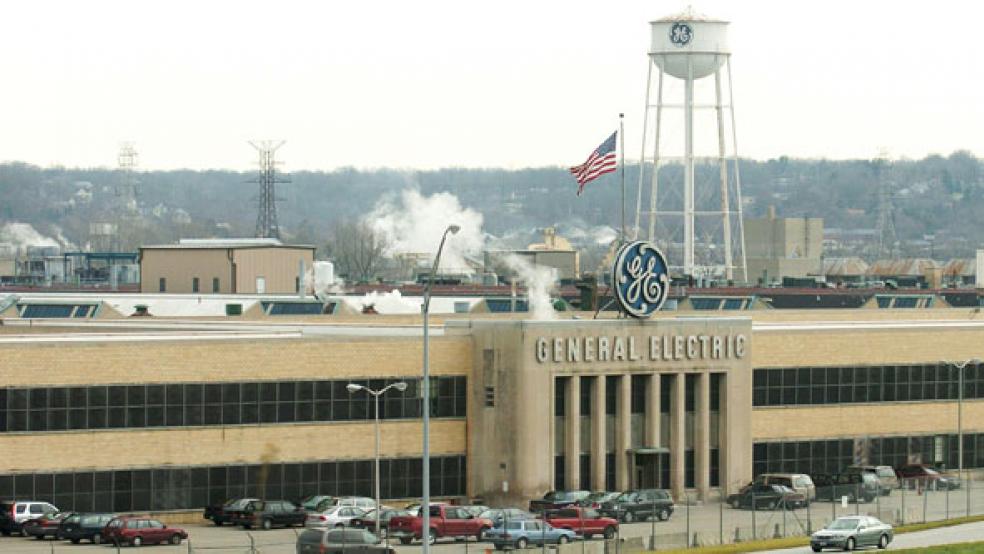In the high-stakes job creation derby, President Obama may well be backing the wrong horse. In speech after speech, Mr. Obama has promoted policies aimed at creating incentives and opportunities for small firms. While such attentions are doubtless constructive for our struggling economy, they cannot compensate for the roadblocks that the White House has thrown in front of our largest companies.
The president asserted in his recent speech to the joint session of Congress, “Everyone knows that small businesses are where most new jobs begin.” Count that “everyone” but one team of economists (Haltiwanger, Jarmin and Miranda) who published a paper in 2010 showing that, in fact, small businesses do create lots of jobs, but lose nearly as many. They conclude that it is the age of companies, rather than their size, that determines their importance in creating ongoing employment. In fact, they found that “firms with between 5 and 499 employees have lower net growth rates than the largest firms (10,000 or more workers) in the economy.” It is the rare successful start-up (like Facebook) that goes on to create significant numbers of jobs.
President Obama chooses to believe that small businesses are the heart of our economy; that suits the mindset of his liberal backers, but is an inappropriate posture, and potentially a costly one. Consider: In 2008 there were 7.6 million businesses in the U.S., employing 121 million workers. Of that total, large firms (defined as having more than 500 employees) accounted for 51 percent of all employees, and 56 percent of the country’s payroll. In addition to building up small companies, should we also not be encouraging this dominant employer group?
The answer is yes, especially since the importance of big business may be climbing, not shrinking. The significant role played by small companies in job creation over the past two decades may have reflected swiftly changing factors that may not be so influential going forward. Over the past twenty years, the forces of globalization have challenged companies to compete as never before, so, seeking lower costs, many if not most large U.S. firms sent jobs overseas. Small companies have neither the need nor the resources to follow suit. More often, their businesses, such as barber shops or car dealerships, are local.
Today, the shift abroad appears to be winding down, with more companies facing rising labor costs overseas and deciding that language advantages plus proximity to markets can tip the balance in favor of bringing production home. Also, many of the activities that can be outsourced have already disappeared from our shores.
At the same time, low-cost overseas competitors have driven a lot of our smaller firms out of business. Thus, the number of employees working at large firms has been rising since the late 1980s. In 2008, 50.6 percent of all employees worked for companies with more than 500 people; two decades earlier, that number was 45.5 percent. Common sense argues that the trend may continue. Most analysts expect emerging countries – especially in Asia – to continue outpacing the developed world, providing the best business opportunities. Will the corner bookstore access Brazilian readers? Will Joe’s Deli cater to expanding Asian markets? Not likely – Amazon and McDonalds are better suited to meeting that demand. The Obama administration, in favoring smaller firms, may be targeting a sector of dwindling importance, at least in terms of employment.
Many Americans are undoubtedly skeptical when critics chide the administration for being unsupportive of our country’s large corporations. They remember the bank bailouts – and see corporate profits surging ahead; some might think the administration has been too generous to our largest employers, who sit on trillions in cash and who have done little hiring.
Those Americans might not be aware of the blizzard of investigations, enforcement actions, and impediments offered up in the past three years by the Department of Justice, the Environmental Protection Agency, the National Labor Relations Board, the Food and Drug Administration and a host of other agencies. Every day there is a new headline along the lines of today’s “U.S. Targets Drug Execs” that raise alarms in the corporate community. No wonder the Bureau of Labor Statistics projects “examiners and investigators” to be the fastest growing category of federal employee in the coming decade, with growth of nearly 20 percent.
Even those who might sympathize with the Justice Department’s ramped-up enforcement of the Foreign Corrupt Practices Act (there were 24 investigations opened in 2010 versus five in 2004); or the little-known Lacey Act, which forbids trafficking in rare plants and animals (which got a surprised Gibson Guitar in hot water); or its beefed-up antitrust stance which blocked AT&T’s acquisition of T-Mobile, might agree that such activities do not bolster confidence in the executive suite. As the Chamber of Commerce, in a letter sent to President Obama last year, said, "No matter how well intentioned or politically popular a proposed law or regulation appears to be, the question must always be asked, What will the impact be on jobs?"
The country needs investment and growth. People are still paying down debt, and the government is maxed out. The corporate sector, with its large cash reserves, is uniquely poised to spend. President Obama’s antipathy to big business is retarding our recovery. At the Iowa State Fair, Mitt Romney was chastised for saying, “Corporations are people.” He is completely correct; corporations are people who make investments and hiring decisions, and who could play a large role in turning this country around. They are people that President Obama should get to know.



